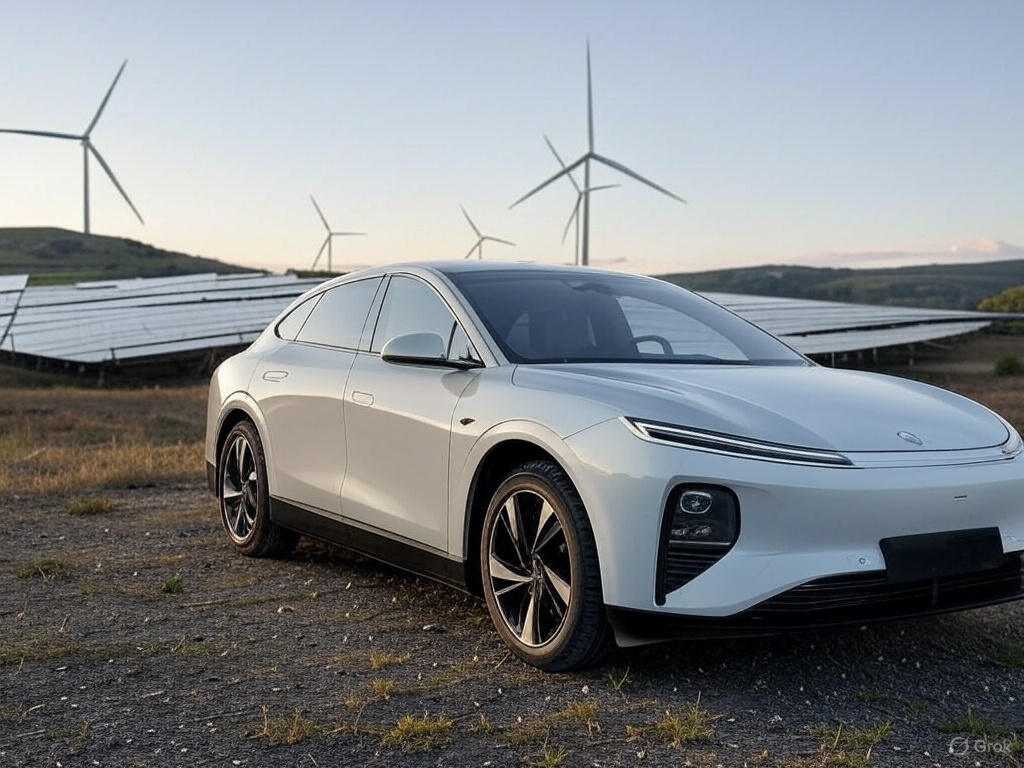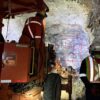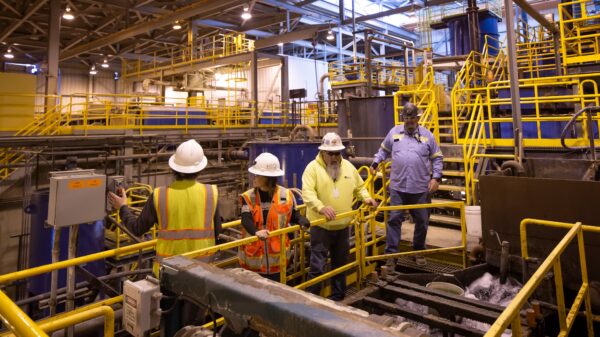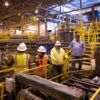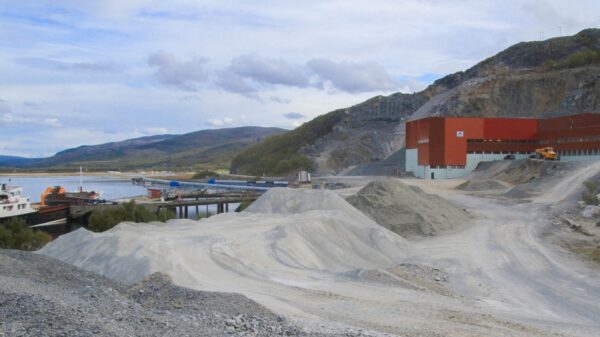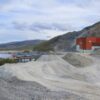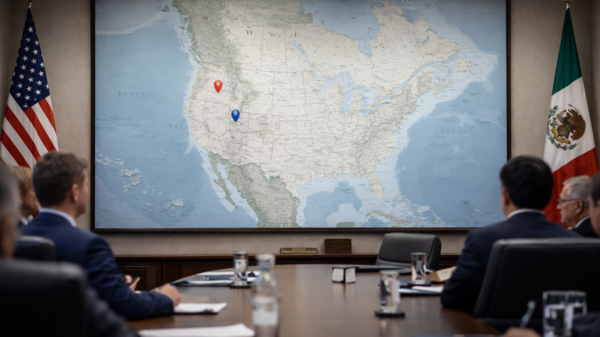President Donald Trump’s administration has reversed protections brought by the Biden administration to preserve thousands of acres of land in Nevada and New Mexico, and effectively open them to oil and gas drilling, geothermal development and hard-rock mining.
Agriculture Secretary Brooke Rollins announced the decision on Friday as part of an emergency order. This order permits logging across more than half of the national forests, which amounts to nearly 113 million acres. Rollins explained that the move aims to significantly increase timber production. However, critics contend that the government is prioritizing private industries at the expense of environmental protection.
The agency quietly added an addendum to the logging announcement: it ended protections on federal land in Nevada and New Mexico to “boost production of critical minerals.” On Monday, the agency also confirmed that the affected land includes Nevada’s Ruby Mountains, where 264,000 acres were previously protected from oil, gas, and geothermal energy development. It also includes the Upper Pecos watershed in north-central New Mexico, where the Biden administration had banned mineral mining.
“The Trump administration’s decision is a betrayal of trust,” said Senator Martin Heinrich in a statement. “This kind of top-down decision-making, with zero attempt to discuss or even listen to the communities impacted, is exactly what’s wrong with this administration.”
At the request of Native American tribes and local communities. The Biden administration enacted protections for both areas intended to last 20 years.
Furthermore, Ralph Vigil, an organizer for the New Mexico Wilderness Alliance, an environmental nonprofit group, stated that mining would harm the area’s outdoor recreation economy.
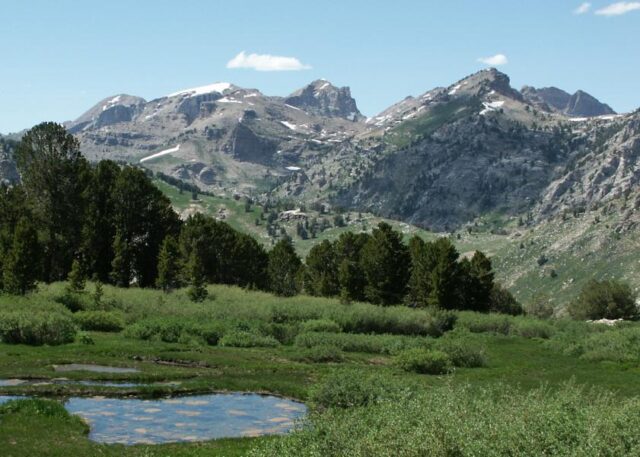
The Ruby Mountains Wilderness, Nevada. Image from G. Thomas via Wikimedia Commons.
Read more: NevGold’s long intervals of antimony & gold mineralization turn heads
Read more: NevGold pulls critical mineral antimony from Limo Butte property in Nevada
Hard rock miners have interest in the Upper Pecos watershed
Biden prioritized the fight against climate change by restricting drilling, mining, and other activities across 674 million acres of public lands and federal waters, the most of any president.
President Donald Trump denies climate change, calling it a hoax. He directed federal agencies to reverse policies reducing greenhouse gas emissions. Instead, Trump seeks to increase fossil fuel demand and production, including on public lands and in federal waters.
Hard-rock miners had shown interest in the lands of the Upper Pecos watershed, where they extract minerals like gold and copper from rock. In the 1990s, a spill from a closed mine contaminated the Pecos River, affecting local water supplies. In 2019, an Australian company applied for permits to explore drilling for gold, copper, zinc, lead, and silver. This sparked a movement to permanently protect the area.
Trump also invoked wartime powers to boost production of critical resources like uranium, copper, potash, and gold. He created a national energy council to identify other critical materials.
Critical minerals are natural resources essential for the economy, national security, and the development of advanced technologies. These minerals include rare earth elements, lithium, cobalt, nickel, and others, which are used in a variety of industries. Furthermore, they are vital for producing electronics such as smartphones, computers, and electric vehicle batteries.
Critical minerals also play a key role in renewable energy technologies, like wind turbines and solar panels, as well as in defense systems, including missiles and satellites.
Due to their limited supply and increasing demand, securing a stable supply of critical minerals has become a national priority for many countries, especially since China holds a stranglehold over production and many of these minerals.
Read more: NevGold uncovers high-grade multi-metallic mineralization in Idaho
Read more: NevGold closes its Nutmeg Mountain acquisition with Goldmining for $3 million
Trump has taken steps to improve critical mineral production in Nevada
President Joe Biden’s introduced the Inflation Reduction Act (IRA) in 2022. It advanced U.S. efforts to secure critical minerals essential for clean energy technologies and national security.
The IRA allocated substantial funding to enhance domestic mining activities for minerals like lithium, cobalt, nickel, and rare earth elements.
It introduced tax credits and incentives to stimulate investment in electric vehicle (EV) batteries, solar panels, and other options. Additionally, the IRA removed previous innovation requirements for certain clean energy projects.
In response, former President Donald Trump has taken steps to bolster domestic critical mineral production. In March 2025, he signed an executive order invoking Section 301 of Title 3 of the United States Code to expedite domestic mineral production for national security purposes.
This order established the National Energy Dominance Council to oversee mineral security efforts. Further, this includes accelerating geologic mapping to locate new mineral deposits and ensuring critical mineral projects receive federal support.
All of these changes have therefore opened a number of potential options to help resolve these geopolitical issues.
Additionally, several companies in Nevada are expanding into critical minerals alongside their traditional operations. NevGold Corp. (CVE: NAU) (OTCMKTS: NAUFF) (Frankfurt: 5E50) has discovered up to 10 per cent antimony in surface samples at its Limousine Butte gold project. Antimony, for example, is vital for flame retardants and batteries.
Meanwhile, American Battery Technology Company (NASDAQ: ABAT) operates a commercial-scale lithium-ion battery recycling facility, aiming to produce battery-grade lithium hydroxide from claystone deposits.
NevGold Corp is a sponsor of Mugglehead news coverage
.

